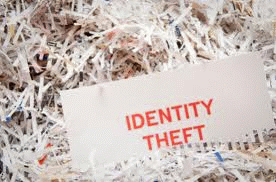|
Shredding Documents Tips
Not shredding documents today increase your risk that personal and sensitive documents may get into the wrong hands. It is important for you to invest in a shredder for your home or office to help prevent identity theft. Today shredding documents is not optional if you want to protect your Identity. Identity thieves like to do “dumpster diving” where they are able to go through your trash to try find your personal information. This maybe one of the most important ways for you to protect your Identity today. Shredding documents which ones do I select? Look at any sensitive information which also includes advertising and personally addressed solicitations that may include any of the following: 1. Name and address, phone numbers 2. Credit card or bank statements 3. Birth dates 4. Passwords and PIN numbers including credit card and bank cards 5. Anything that has your signature 6. Documents that contain your social security number from the IRS, Bank or credit card company. 7. Email addresses 8. Birth Certificates 9. Marriage License 10. Divorce papers 11. Death certificates 12. Military records 13. Copies of Wills and any other legal papers How long should I keep sensitive documents? If you like me, you probably have a lot of paper you have accrued. In fact, when you moved you may have brought all of your paper documents with you. So are there some guidelines to follow with respect to keeping sensitive documents? 1. Bank & Credit Card statements – probably not more than a year. Most banks and credit card companies now archive and have these available online in case you need them regarding a question or dispute. 2. Tax Records – the IRS has published guidelines but the general rule is seven (7) years, even though the IRS has only 3 years to audit your return if you made a mistake and up to six (6) years if your under-reported income. 3. Pay stubs – whether you’re a W2 employee or a 1099 contractor you need to keep these statements for up to a year so that you can match to the yearend statement that you receive from your employer. This way you have a record of wages and commissions received to match against. 4. Medical records – the rule of thumb is to keep these at least a year, however if you have an ongoing illness that might be challenged by the IRS, you may want to keep ongoing records that document symptom’s and treatments as well as health insurance reimbursement. Most prescription records should be able to obtain by your local pharmacy which in most cases keeps a electronic copy for you. 5. IRA & 401K contributions – would be advised to keep a year’s worth of documents and the shred quarterly after you have matched to your annual statement. 6. Home Purchase/Sale and Improvement to Property – it is recommended you keep this information for at least six 6) years after the sale of the property in case you are challenged by the IRS. Additionally you will need to keep a written record of any major improvements on your current property including real estate commissions. 7. Insurance Records – policy information should be kept at least five (5) years and kept in a secure location in case of a disaster like a fire, tornado or natural disaster. 8. Warranties – appliance and other warranties should be kept until they expire. 9. Legal Documents – birth certificate, marriage license, divorce papers, military records, death certificates, copies of wills and other legal papers. These documents you should keep for live and should be stored off site in a safety deposit box if possible.
|
Free ID Theft Newsletter Subscription
Additional Identity Theft Articles
AARP - Earthquake Scam
AARP - Elderly Scam
AARP - Email Hoax
AARP - Fraud Protection
AARP - 2012 Fraud Scams
AARP - Social Media Twitter
AARP - Social Security Scams
Business - BBB Beware
Business - Is your Business at risk?
Business - ITC warns of Business Risk
Business - Small Business Prevent, Detect and Remedy
Business - Secretary of State Warns of Business Identity Theft







